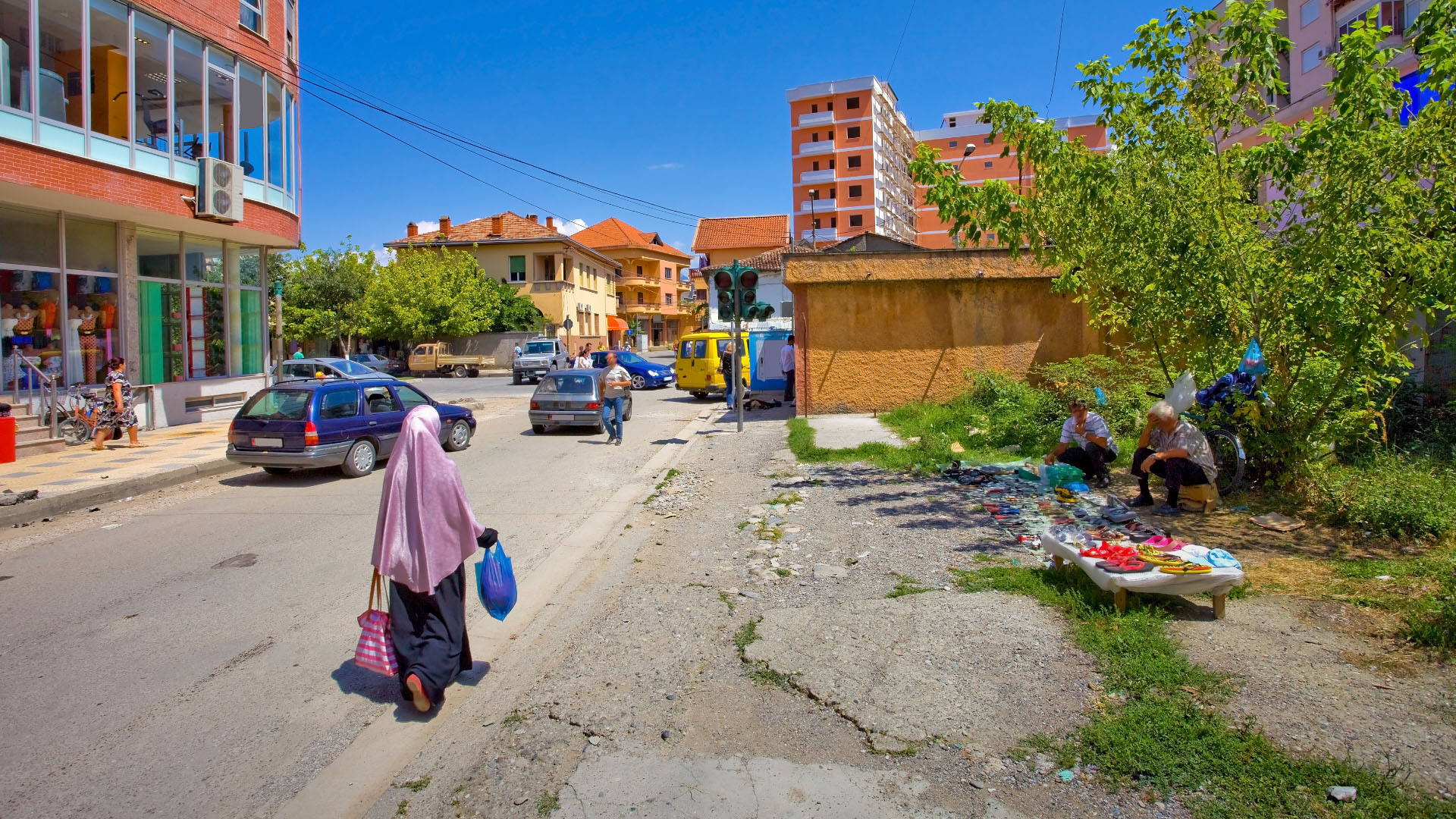After growing up Muslim under Albania’s Communist government, a widow found spiritual and economic freedom in Christ.
In 1953, Dr. Martin Luther King, Jr. preached a sermon where he stated, “…the methods of communism are diametrically opposed to Christianity.”
That same year Stalin died, and the Soviet Union’s hold on many of its Eastern European holdings, including Albania, began to slip. However, it would not be until 1990 that communism would collapse in Albania, and its isolationist policies and rigid anti-religion laws would be abolished.
Even today, the long wake of communism’s devastation is still being felt by many people in Albania’s rural towns and villages.
A Village Much Like Many Others
Ibë is a small village about 12 miles south of Albania’s capital.
The 200 families living there mostly worked in the local coal mine that was created by Communism’s rush to industrialize the country and create a railway network. After the government’s economic collapse, the mine was closed.
Little regard was given to Ibë’s residents and where they would make their living without the mine. Most of the people didn’t own land beyond what their house was built on and had little to no experience with agricultural work.
Those who were able traveled to the capital for work or left the country. The less fortunate were left to sink into the bog of poverty.
When World Challenge’s partner entered Ibë, the town and its church had atrophied into those who felt they had nowhere else to go and no hope for a better future.
Forging Forward Alone
Hatixhe Kaca grew up in a secretly Muslim family under the oppressive Communism régime. She was 12 when the government fell and Albania opened up to the world. Unfortunately, many of the advances and social improvements that followed would not be felt in Ibë until much later, if ever.
Hatixhe married and had two little girls. Shortly after, though, her husband died.
She was only 24 years old and felt overwhelmed by her situation. “I had no idea how I would live. I had no job or any support from my relatives. All I could do was to move forward alone as best I could, and so I did.”
Her life became consumed with daily survival, a process she described as an emotional shell to protect her from loneliness and fear.
One day, a friend of hers told her that some new church people had come into Ibë. Hatixhe knew about Allah, but she’d never heard of this God they talked about, and she had no interest in going to a “Christian mosque.”
Meeting the Present God
Hatixhe’s friend went to the church and told World Challenge’s partners about the desperate situation. They offered to visit Hatixhe, and the friend joyfully rushed back with the news.
“I was surprised,” Hatixhe recalled; “but then I said to myself ‘Ah, it's just a visit. There won’t be any problem. When I saw them coming, however, I was suddenly aware of the miserable condition of my house. I was bitterly ashamed, but they were so kind. They had a warmness that I missed.
“I went in the church but felt like a stranger. It felt like everyone was looking at me. I thought, ‘They talk about Christ, but it doesn’t help; these words won’t give my family anything to eat.’”
The pastor’s wife stayed in contact with Hatixhe and helped her learn more about the son of God. World Challenge partners began forming community health groups and invited her to join.
She was startled to learn that Jesus cared about her and her daughters’ physical conditions and well-being as well as their souls.
Eventually, she came to trust in Christ, that he would take care of her no matter what happened in her life.
Hatixhe quickly became more and more involved in the church, curious to draw closer to the God who cared for her and those around her.
A Woman Who Loves the Lord
The church facilitated several community projects like agricultural and small business classes. Through these, they encouraged families to cultivate seasonal gardens and start family businesses. Church members started saving and investment groups so they could support anyone who wanted to start a business.
With their help, Hatixhe was able to not only support herself and her children but also make sure her girls continued their education. Eventually, both her daughters went on to a university.
They also serve in the church’s youth group and have grown up into a strong faith in Christ.
“In God, I have learned to think and work in a different way.” Hatixhe explained. “Today we know that God is with us, wherever we go, wherever we are. He is our Lord and leads us every day.”
